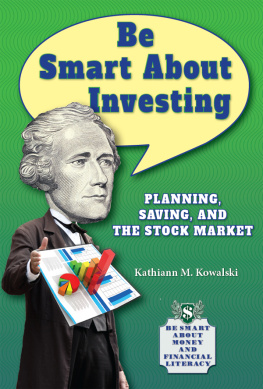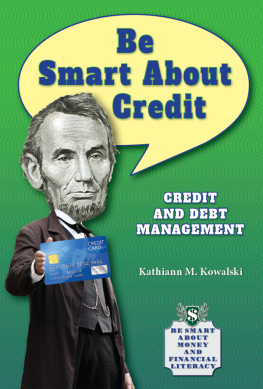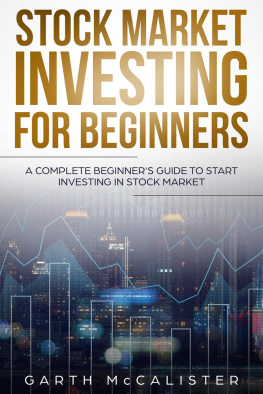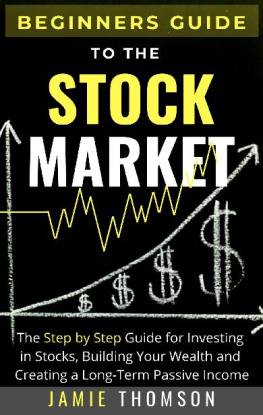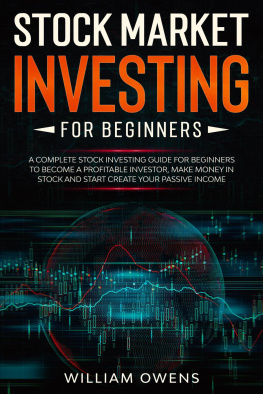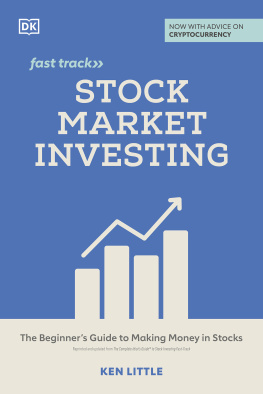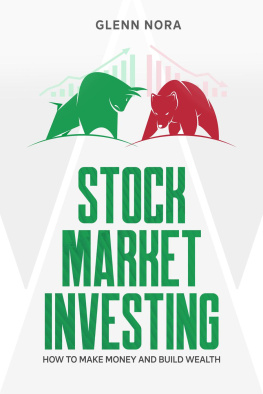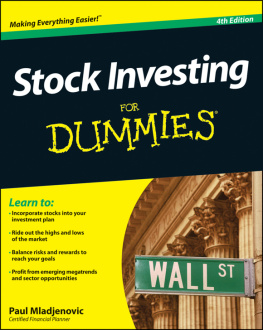Invest Your Money Wisely!
With $100 in your pocket, you could buy new jeans, a pair of shoes, and a couple movie tickets. You might still have some left over. But what if you took that $100 and invested it instead. In ten years, that $100 might turn into $1,000even $10,000! Saving, planning, and smart investments can make your money grow. It might not be as much fun as spending it, but you'll be much better off in the future. Be Smart About Investing will get you started on the best ways to save your money, learn about the stock market, and plan your financial future.
About The Author
Kathiann M. Kowalski received her bachelor's degree in political science from Hofstra University and her law degree from Harvard Law School. She has written several titles for Enslow Publishers, Inc.

As a junior high school student, Danielle saved money from gifts so she could buy a laptop computer. A few years later, savings let her buy an iPhone.
Its so exhilarating to know that the thing I use every day was something that I myself had bought, said the New York teen. Danielles experiences show how saving money now can help you buy things in the future.
Eric worked summer jobs at regional theaters near his Utah home. About 90 percent of his paychecks went into a teen savings account.
I didnt really want to have a job during school, Eric explained. If I had spent all my money during the summer I would have been quite poor throughout my senior year of high school. Summer job savings likewise provided spending money when Eric started college.
Saving provides a financial cushion for times when money is tight. It relieves a lot of stress to know you have enough money to get by for a little while, Eric said.
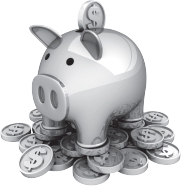
Saving also helps handle unexpected events, or contingencies. When Erics computer suddenly needed a new video card, savings paid for it.
Investing, or using money to make money, is yet another reason to save. Some investments pay interest. Others pay out business earnings as dividends. Some types of investment also appreciate, or increase in value.
Danielle and Eric would not have saved any money if they spent all their earnings or monetary gifts. Saving happens only if you spend less money than you have coming in.
You might try to save a set percentage of income. Or, consider how much you would like to save by a certain date and then determine how much to set aside each week.
Use a budget to plan how you get and use money. You can save money, spend it, or give it away. If youre saving less than you need for your goals, revise your budget. If increasing income isnt practical, find ways to spend less.
Saving isnt always easy. In the short run, it means going without some things. In the long run, however, saving can let you buy things you might not otherwise be able to afford. Saving also provides some financial security. Together, both factors can make your life better.
GOOD CENTS

Using money for one purpose means its not available for other uses. For any financial decisions, consider the opportunity costs. How else could you be using the money? What are the pros and cons of any particular choice?trewq
For example, spending $15 this week for a movie and snack afterward lets you have fun with friends now. However, it leaves $15 less for sports gear you want to buy next month.
NON CENTS

Saving isnt only for adults with high-paying jobs. The longer you put off saving, the harder it will be to meet your financial goals.
Saving $10 per week will give you more than $1,000 to use two years from now. Delay a year, and youll need twice as much each week to save the same amount. In addition, youll miss any interest the money could have earned that first year.
Now its your turn to Do the Math. The end of each chapter features a math or word problem. Use what you learned in the chapter to help you answer the questions. The right math will help you make the right financial decisions.
Your high school is offering an educational tour of Central America next July. The tour price of $2,205 is due by June 1. When you talk with your parents on September 1, they agree to pay 60 percent of the cost if you pay the rest. Your part-time job at a supermarket provides $392 per month as take-home pay.
a. How much must you save each month from September to May to pay your share?
b. What percentage is that amount of your monthly take-home pay?

Piggy banks are fine for spare coins, but theyre not very practical. Other forms of savings offer more security, convenience, and the chance to earn interest.
Interest is a charge or fee for the temporary use of money. Usually, interest is a percentage of the principal. The principal is the amount someone borrows.
A bank deposit essentially lends funds to a bank. Interest on bank accounts pays people for letting banks use their money. Meanwhile, banks use the deposits to make more money. They invest the funds or make loans to others.
Compound interest is money earned on interest that stays in an account. Suppose a bank pays a 6 percent annual interest, compounded annually. Compounded annually refers to how often the bank pays interest. After one year, a savings deposit of $100 will earn $6. Leave the entire amount in the account for another year, and youll earn 6 percent on $106. If a bank compounds interest monthly or daily, funds earn slightly more.
For example, if a bank compounds interest monthly, it pays one-twelfth the annual rate each month. If the annual rate is 6 percent, one-twelfth of that is 0.5 percent, or .005.
At a 6 percent annual interest rate, compounded monthly, $100 will earn 50 by the end of one month. The next month, the bank will add another 0.5 percent interest to $100.50. After twelve months, youd have 16 more than you would have had without compounding.
An extra few cents may not sound like much, but it adds up. Over the years, compound interest can produce hundreds or thousands more dollars for college, a home, or retirement.
Liquidity matters, too. In other words, how easily can you convert an account or investment into cash and use it? Put another way, how long must you go without the funds? Usually, the longer youre willing to wait, the more your money can earn.
What if you tie up funds but then need the money sooner? You may have to borrow or do without something. Even if you can withdraw funds or sell an investment, you may lose interest income. You might also owe a penalty. Then you could lose part of your initial funds.
Suppose you put $5,000 into a twelve-month certificate of deposit. The certificate pays a 6 percent annual interest rate at the years end. If you withdraw the money after three months, you might get no interest at all. If the bank also charges a fee of $25, you would have less than you started with.
Security is about the safety of an investment. Are you sure you will get your money back? This chapter looks at two safe groups of savings and investments: federally insured deposits and United States Treasury securities.

